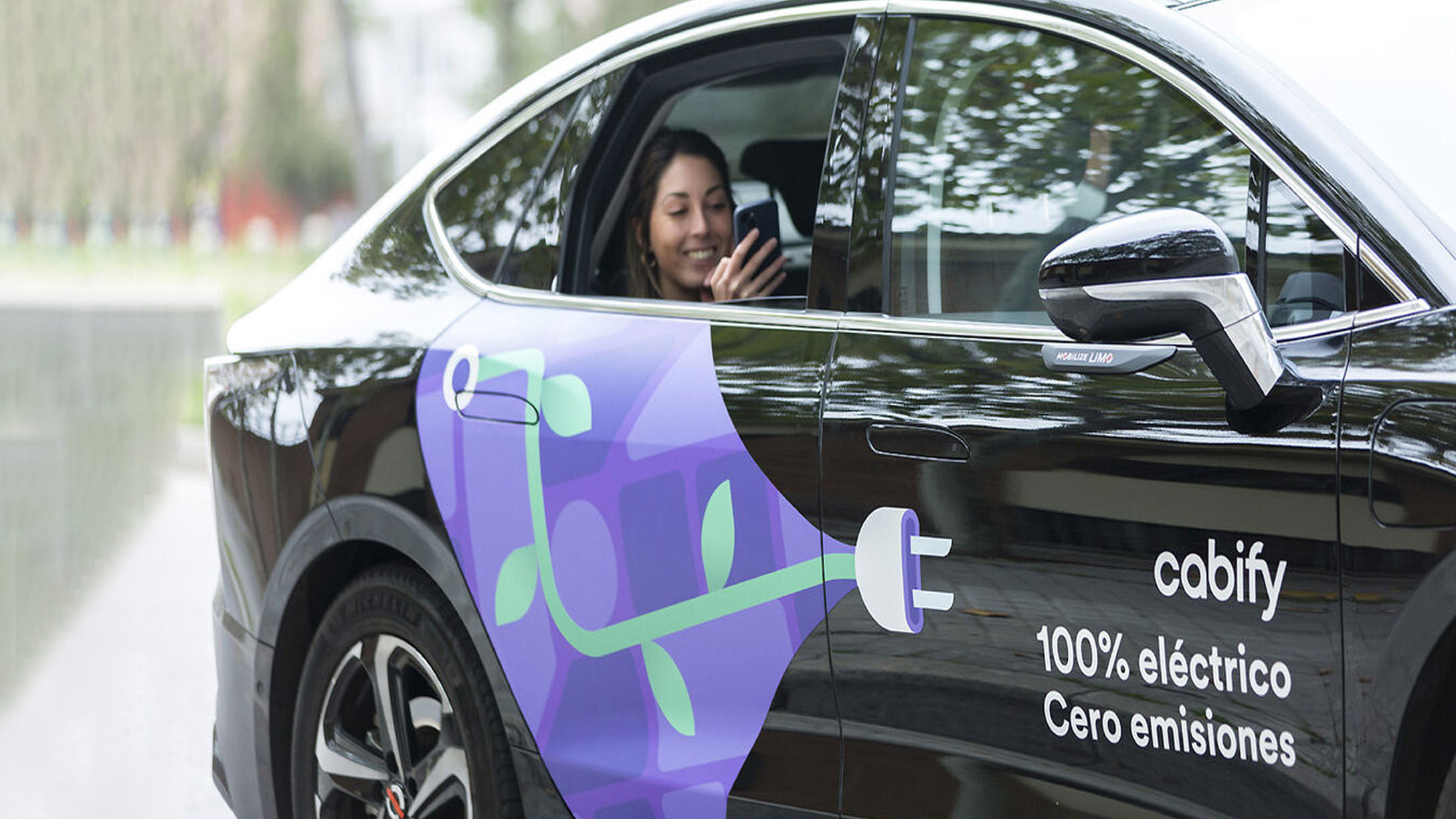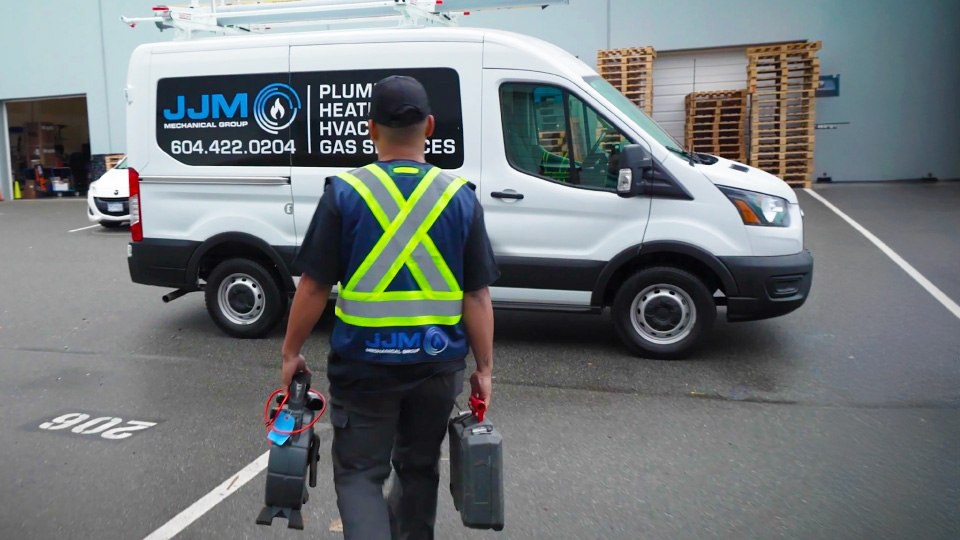
Vecttor (Grupo Cabify): control and improve the operation of a fleet of 3,000 vehicles.

Table of Contents
Cabify is a Spanish multi-mobility company. Its activity is focused on urban passenger transportation in vehicles with a driver, and its platform also offers taxi, by-the-minute electric motorcycle rentals and car sharing services. There is a shipping service for individuals, too.
Grupo Cabify is a company in constant expansion. Initial financial estimates show that global business volume in 2022 was 24% higher compared to 2019, and 32% higher than that of 2021.
Recently, Cabify has obtained funding to accelerate its strategic, cost-effective growth and sustainable mobility plan amounting to $110M thanks to new shareholders, in addition to the loan granted by the European Investment Bank (EIB) to electrify the company’s own fleet. Thanks to these investments, the company foresees tripling its profits in the next 3 years. Additionally, it looks to expand its market share in the countries in which they operate and, among other projects, it will open up business in over 25 cities in Latin America and Spain.
Integrated in the group, Vecttor is the Cabify subsidiary company that manages the VTC licenses in Spain. Since the pause due to the pandemic, their growth has been exponential, going up to over 3,000 VTC licenses (vehicles-for-hire), and becoming the benchmark company in its sector in terms of employment and quality of operations. All Vecttor vehicles (whose fleet includes electric vehicles and the only four hydrogen cars used in Spain as vehicles-for-hire) provide the service through the Cabify app in five cities so far: Madrid, Malaga, Barcelona, Seville, and Valencia.
The challenges: Improve vehicle operations
For Vecttor’s fleet managers, the greatest challenge is to improve their fleet operations. From the beginning of their business activity, they have relied on telematics technology as their best tool to maximize the performance of their cars, optimizing each kilometer travelled, minimizing the downtime and assuring efficiency and safety in each trip.
Reduce “empty vehicle times”
It was crucial for Vecttor to get more information about their vehicles’ riding times. One of the greatest challenges faced by the company was to identify and minimize the empty vehicle times, which is when a driver goes without any passengers or packages.
With this piece of information, and accurate data, it would be possible to optimize the operation radius of each vehicle to aim to lower the time that passengers have to wait.
Cut down fuel consumption and emissions
With thousands of vehicles moving around, it's vital to reduce fuel consumption and the emissions of pollutants. This was another challenge presented by Vecttor, highlighting that in 2018, Grupo Cabify became the first platform in its field to be carbon-neutral. Since then, the company has come to offset its global emissions levels and those of its passengers, fulfilling an annual reduction commitment, in adherence to the UN Global Compact.
To achieve this objective with respect to sustainability, Vecttor needed the right technology that was able to offer the company all the information they needed about their vehicles' activities.
Improve driver and passenger safety
The safety of drivers and passengers is a priority for Vecttor. For that reason, the company’s third challenge was to understand the driving patterns of its workers in order to reduce dangerous driving habits and establish appropriate training plans.
With this information, they were able to mitigate those dangerous situations, recognize the reasons why those incidents were happening, and even adapt the training courses to the most common problems seen in those driving patterns.
The solutions
Reduce “empty vehicle times”
With the objective in mind of reducing waiting times and to ensure more productivity and efficiency for its fleet, Vecttor chose the Geotab GO9 device to complement, enhance and help them to understand the information they obtain from their own Cabify platform.
Geotab technology collects information about the time the vehicles are in movement, this piece of data, along with the hours the driver is connected to the app, allows extrapolating the real working hours of each driver, without including the resting times or trips back to depot.
With Geotab's geolocation platform, Vecttor’s experts analyze routes and optimize trips, ensuring each vehicle is within the appropriate radius to be ready for service with the minimum waiting time possible for the passenger, and for the driver to get to the pickup point.
Cut down fuel consumption and emissions
Pursuant to its objective to reduce fuel consumption and emissions, Vecttor bet on Geotab's technology. This allowed the company to have both parameters under control thanks to the information gathered from the devices installed in all their vehicles.
“In doing so, we discovered and solved anomalous consumption peaks and driving behaviors that can be dangerous and non-efficient” explains Manuel Delgado, CIO in Vecttor (Grupo Cabify).
Vecttor currently has a fleet of EVs that are connected to Geotab's platform despite not having GO devices installed, all thanks to Cloud To Cloud technology.
What's more, focusing on the future, Cabify has set as an objective, that all trips ordered from its app have to be in zero emissions vehicles in Spain in 2025 and in Latin America in 2030. “The project, by the end of this year, would be the optimization of the EVs that we will be including in the fleet”, says Manuel. This includes a project to optimize routes in a way such that it's guaranteed that whenever an EV would need it, there's a charging station nearby, reserved for the company to be able to charge the vehicle immediately.
Improve driver and passenger safety
In its commitment to safety, Vecttor also took into account Geotab's technology. Thus, and along with the efficiency and efficacy, one of the GO device features that Vecttor is taking more advantage from is collision reconstruction.
“This feature is very helpful to us because it gives us certainty about who is responsible in case of a collision”, explains Manuel Delgado.
With this information, the Vecttor team can count on being able to offer detailed information to insurance companies as evidence regarding the events and circumstances of incidents involving company vehicles.
Results
One of the main challenges Vecttor was facing was to reduce empty vehicle time, i.e. when a driver goes without any passengers. Geotab's technology allowed Vecttor to have the appropriate information required to optimize its service. The GO device offers Vecttor rich and accurate data, for example, about distances driven or the trip history. Even if the vehicle is parked in an underground facility or garage, the GPS vehicle-tracking feature and the telematics system start logging data as soon as the vehicle begins moving.
Through this data analysis and those obtained from Cabify’s platform, Vecttor was able to know the real driving time of each vehicle, and that helped them to optimize routes and reduce the fuel consumption between 2-3% per vehicle. As a result, it is estimated that they can save between 14,000 to 18,000 liters of fuel per month, which would mean potential savings of over €200,000 per year in fuel.
Additionally, in pursuance with its commitment to the environment, other objectives Vecttor has for its vehicle fleet were reducing the fuel consumption and CO2 emissions released into the atmosphere. Again, Geotab's technology has allowed the company to be able to reduce their CO2 emissions by more than 20t a year, helping them to move forward in their sustainability objectives efforts.
In order to provide its customers with the best service, Vecttor has made safety one of its main objectives. Thus, Geotab offers the company with extraordinary data about driving (acceleration, braking, cornering, etc.) As of today, there have been over 2,000 alerts of harsh acceleration, over 500 of lights left on, and another 400 about braking.
Geotab solutions, thanks to patented algorithms and the GO device accelerometer, also allow Vecttor to recreate an accurate reconstruction of any potential incident, making it possible to confer the correspondent responsibility and to improve safety for the passengers, too.
- Company name: Vecttor (Grupo Cabify)
- Industry: VTC
- Based in: Madrid, Spain
- Fleet focus: Efficiency and safety
Client profile
Client name:
Vecttor (Grupo Cabify)
Industry:
VTC
Types of vehicles:
VTC
Fleet size:
3000
Other stories

Savage transforms the operations of its 1,200 vehicles with a scalable telematics solution
May 26, 2025

How Geotab helps TELUS drive sustainability through smart fleet management
May 1, 2025

ENMAX Power Corporation unlocks real-time insights on fleet performance with telematics
April 9, 2025

JJM Mechanical Group: Scalable telematic solution yields big results for small fleet
January 17, 2025